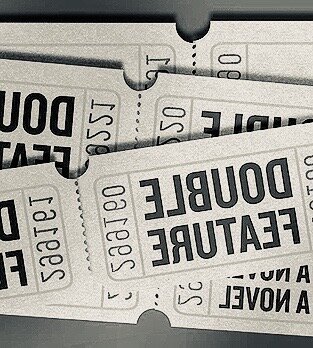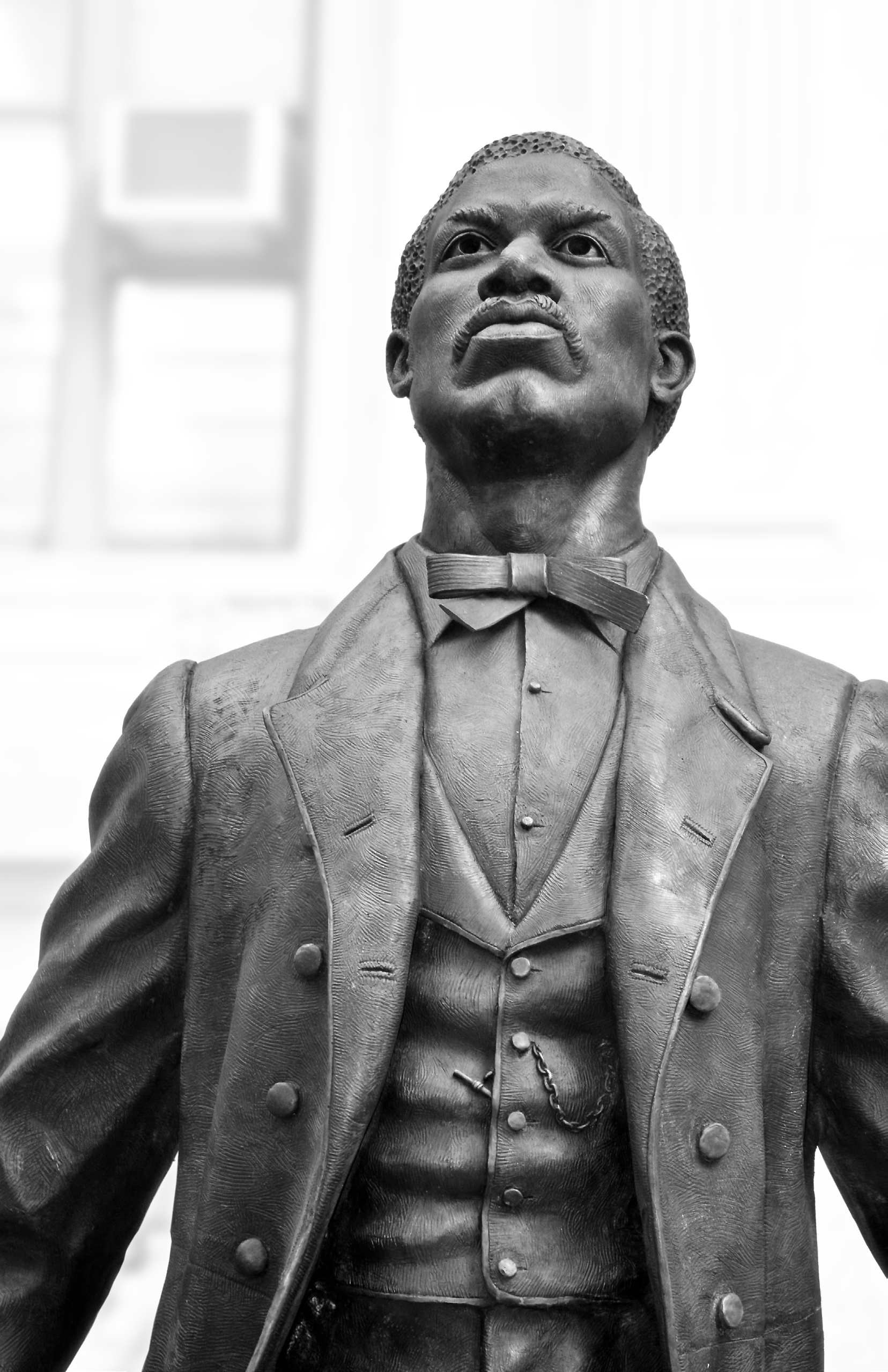You just released Wallop, hell yeah! You put out a lot of stuff (books, zines, podcasts). Do you pursue your art as a compulsion, is it goal oriented, or something else entirely?
Thanks! Mostly I just like to make stuff. I like the process, and I like the feeling when it’s done. I feel like I spend so much time at my job dealing with bullshit that sitting down and creating something is the most meditative and relaxing thing I could do. Lately, I’ve also been realizing that maybe I make art because it’s the only part of my life that’s actually within my own control. If I’m writing/recording/drawing comics/working with wood/whatever, then I am practicing being self-sufficient and autonomous.
Of course, that all changes once a book gets to the publishing stage. Brian Alan Ellis at House of Vlad is a great editor, and I’m grateful for for all the work and thought that he put into Wallop.
But I have more ideas for projects than I’ll ever have time to make, so in that way my art is a compulsion. I’m always trying to catch up to myself. My writing is goal oriented, certainly. I have at least the next three or four years worth of projects planned out.
Tell us about the book a little. How much of the novel is autobiographical? Are there any characters you feel closest to?
Parts of Wallop are autobiographical to a degree, or at least heavily informed by experiences I had. My friend Jacob and I did spend two days hitchhiking from Denver to Kansas City, and once we got there, there was a drive-by shooting. Our other friend did get put in handcuffs after he chewed through police caution tape with his teeth. There are a few things like that. When I was writing the first draft, I took big chunks from my personal journals.
It’s all fiction, too. My life isn’t boring, but it doesn’t follow a narrative structure. What I like about fiction is that I can take all these ideas and events and just create a a set of feelings that exist around them. I write essays, too, but most of the time I hate how the essays come out. I feel like I always end up trying to make some sort of declarative statement in them. My non-fiction is less lifelike than my fiction. In fiction, there’s no statement to be made. There are just feelings and things that happen, and the reader gets to figure out for themselves what things mean or if they mean anything at all. So, in that sense, Wallop is 100% true.
My favorite character in the book is Lauren, the protagonist’s girlfriend. Like the rest of the characters, she’s a little bit out of control, has substance abuse issues, makes bad choices, is fucked up by her past. But she’s strong, too. Or she’s learning how to be, at least. I think she’s quietly funny, rolls her eyeballs all the way out of her head at the pathetic men around her. Of all the characters, I like to think she has the best chance of coming out the other side in one piece.
There are so many good writers out there going unnoticed; who do you follow that we haven’t heard of?
I don’t know who’s heard of whom but here are five writers that deserve more recognition than they currently have. I think they’ll get it, too.
1. Bart Schaneman – I don’t think there’s anybody right now who writes about identity of place in the West and Midwest like Schaneman does. His characters, even when they do bad things, are so respectable that you can’t help but root for them.
2. Naadeya Haseeb – Manic Depressive Dream Girl (Maudlin House, 2015) was excellent, definitely influential to me as far as broadening my understanding of the possibilities inherent in unorthodox short novel structures. I haven’t read any of her poetry, but I’d like to.
3. Steven Dunn – If you haven’t read Potted Meat (Tarpaulin Sky, 2016), get yourself a copy right now. Like, open a new tab in your browser and order it, then come back and finish reading this interview.
4. Adam Gnade – A ton of people have read and loved his non-fiction book, The Do-It-Yourself Guide to Fighting the Big Motherfuckin’ Sad (Pioneers Press, 2013). It’s a good book, but his novels and “talking songs” are what really shine.
5. Bud Smith – I don’t know Smith personally at all, so I feel a little weird saying this. But F 250 (Piscataway House, 2014) and Work (Civil Coping Mechanism, 2017) have influenced my writing and thinking to such a degree that I feel like none of my books would exist if I hadn’t read them. Of course, Smith’s getting a little famous now. Come to think of it, I suspect that all of these writers have more readers than I do. They should be recommending my books.
De Niro or Pacino?
It’s a hard choice, but De Niro. He’s made more bullshit for sure, but Taxi Driver is a favorite. Sometimes you gotta bet big to win big.
Allen Iverson’s “we talkin bout practice?” speech just celebrated 20 years; what’s more important to you: practice or the game?
Larry Brown indicated that practice and the game are the same thing. At least, I think that’s what he was trying to say. What do I know? In his 2010 novel Person, Sam Pink comes back to the refrain, “It feels like practice.” If Pink is saying what I think he is, then he has a different view on practice than Larry Brown does. I think they’re both right.
In the movie Inherit the Wind, Henry Drummond (Spencer Tracy) is scolded by Matthew Brady for using foul language. He responds: “I don't swear for the hell of it. Language is a poor enough means of communication. We've got to use all the words we've got. Besides, there are damn few words anybody understands.”
Do you ever feel constrained by language or find difficulty communicating in your writing?
I wish I was better at writing about nature and landscapes. Every time I read Edward Abbey or Gary Snyder or Paul Theroux, I’m at once deeply moved and profoundly jealous. I don’t have the language to translate onto the page the power and emotion of a beautiful place. Or even an ugly place. I probably swear too much, too.
I mentioned earlier that you put out a lot of work. Do you want to mention any of your other projects?
I have two previous books out: Cactus (Trident Press, 2018), a short novel, and The Way Cities Feel to us Now (Maudlin House, 2019), a collection of short stories.
I’ve been producing issues of an ongoing literary/comics/personal zine project for the past ten years or so called Ultimate Gospel. There’s an audio arm to that as well, an online radio show called Ultimate Gospel Radio. The radio show is mostly just music and spoken word recordings that I like.
For the past three years, I’ve been running a small publishing house called Trident Press. I’ve been lucky to work with excellent writers, editors, and artists.
I’ll give you the floor here. What’s important to Nate Perkins that we haven’t discussed? What’s on your mind?
Justice for Breonna Taylor now.
Purchase WALLOP:
https://houseofvlad.bigcartel.com/product/wallop-a-novel-by-nathaniel-kennon-perkins
About The Author
Nathaniel Kennon Perkins lives in Boulder, Colorado, where he works as a bookseller and publisher at Trident Press. He is the author of a short story collection, The Way Cities Feel to Us Now (Maudlin House, 2019), a previous novel, Cactus (Trident Press, 2018), and an ongoing literary zine series, Ultimate Gospel. His writing has appeared at TriQuarterly, Noncanon Press, Berfrois, Talking Book, Keep This Bag Away From Children, decomP, Pithead Chapel, Timber Journal, Potluck, Thought Catalog and American West, among other places. In 2014 he was the recipient of the High Country News’s Bell Prize.
About The Interviewer
Rob Kaniuk is Creative Nonfiction Editor for the Schuylkill Valley Journal.



















